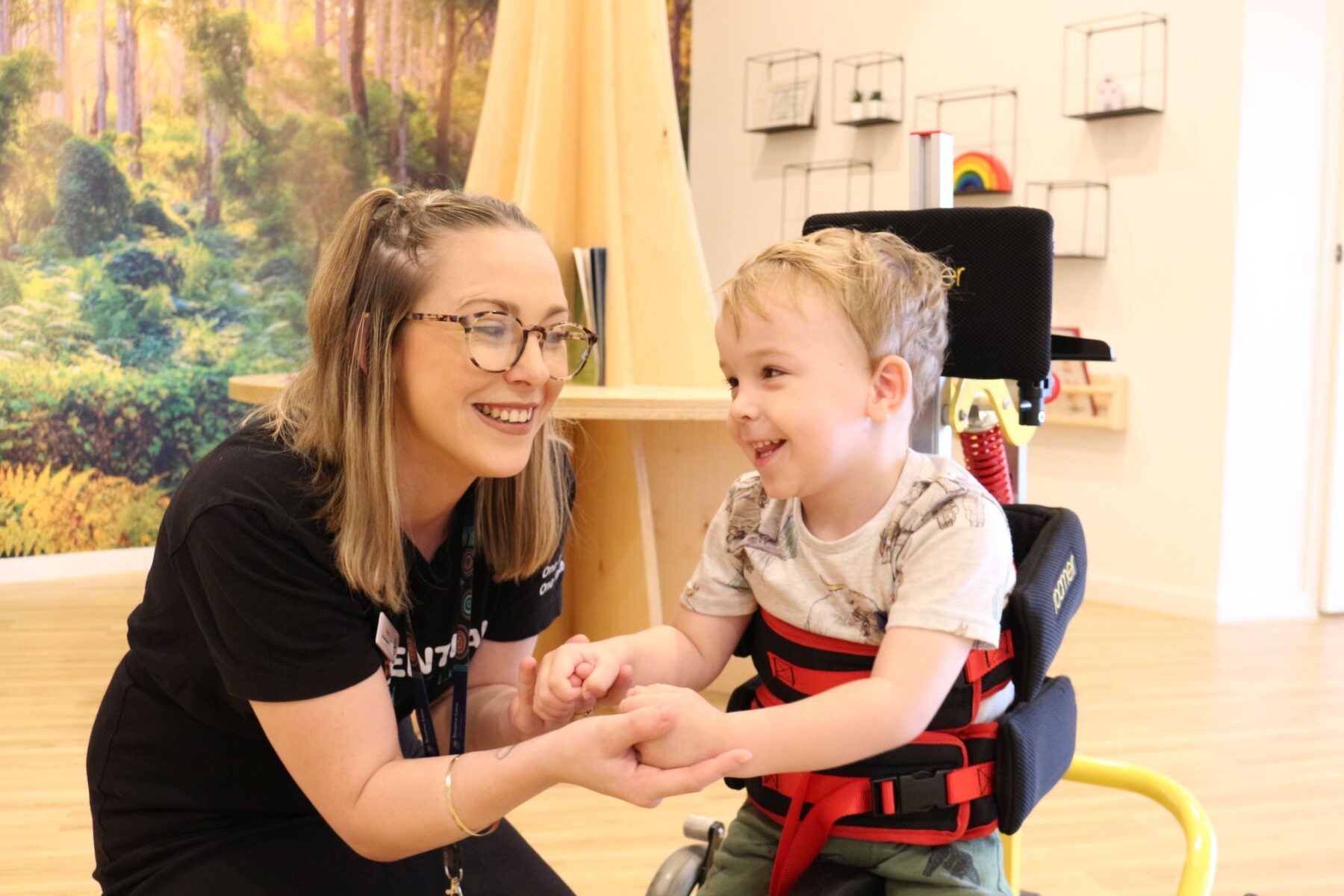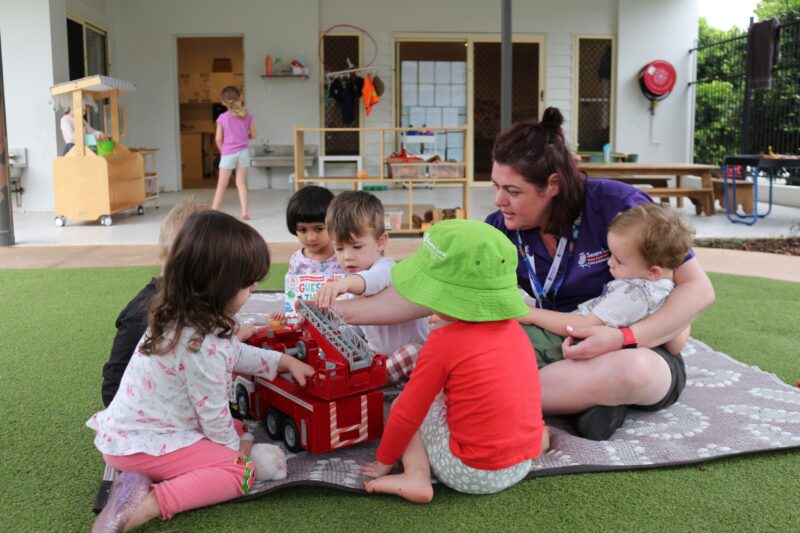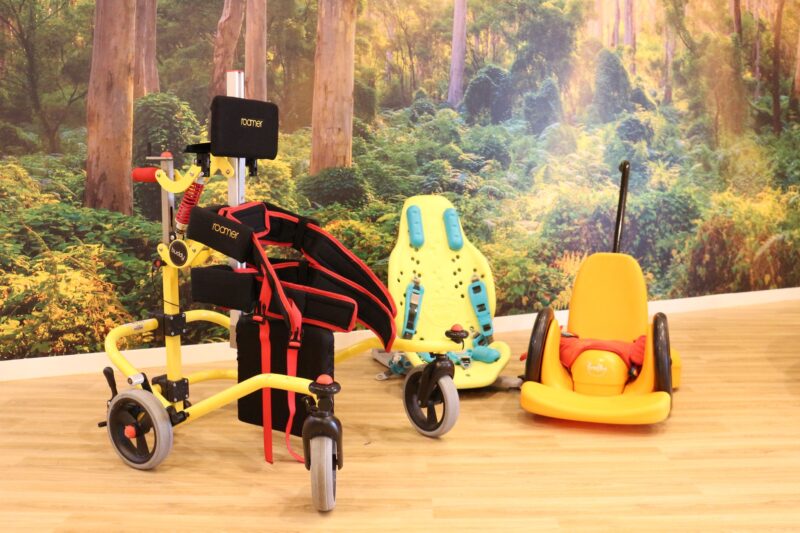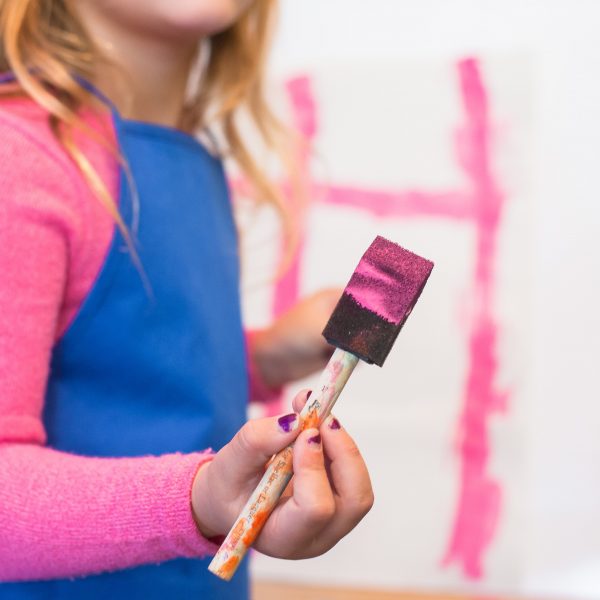Including Oliver: A reflection from Sesame Lane Joyner Circuit on inclusive practice

A group of educators from Sesame Lane North Lakes – Joyner Circuit has prepared the following reflection, sharing their experience of applying for specialist equipment for three-year-old Oliver, who lives with cerebral palsy, in the hope that it supports their fellow professionals, particularly those who are new to working in early childhood education and care (ECEC).
Some background about Oliver
Oliver began care when he was 12 months of age, attending two days per week while his mother Abi works close by.
Educators describe Oliver as an easy going, happy child, curious about the world around him who is also “very sure of his likes and needs!”
His verbal communication is above average for his age, and Oliver loves to play outside, particularly on the swings and in the sandpit.
“He loves to have crawling races with his educators, and we have come to know that Oliver has a competitive streak, pushing himself to try and win the race,” the team shared.
In addition to Oliver’s talents, he also has Cerebral Palsy. The disorder, the educators continued, “doesn’t define who he is, but it means that he has had delays in some areas with aspects of his development, including being unable to walk.”
The impact of restricted movement on Oliver’s experience of care
“Physically, his legs can’t support his own weight, which greatly affects his mobility,” they continued.
“Before he started crawling, he was dragging his legs behind him. Moving around the playground, he found it hard to get to the sandpit, and at times mobility appears exhausting for him.

Currently, at three, he is unable to get himself into a chair or sit on a chair without support, which means he needs help when playing at the table or eating at the table with his friends in his class.”
Educators assist Oliver with his mobility, transferring him from inside to outside and carrying him to a new activity in the playground. While Oliver has made great progress with his mobility through occupational therapy, educators knew that for Oliver to be further included in the day-to-day routine and activities of the class, he requires some additional support.
Exploring specialist equipment and resources
The first step in accessing additional support for Oliver was for the team to contact Inclusion Support Queensland. An inclusion professional (IP) then visited the service to meet Oliver and the educators who care for him.
“The purpose of the support visit and future visits was to assess the environment with the aim of finding improvements that could be made in the physical spaces and in resources,” educators shared.
The IP also spent time with the team learning more about the barriers to inclusion, and exploring how to break these down using targeted strategies.
Referrals were given to Vision Australia and the Cerebral Palsy Alliance to further support Oliver. Inclusion Support Queensland then helped the team to create a pathway to apply for specialist equipment.
Outlining the process for others
To apply for the specialist equipment through Inclusion Support Queensland, educators collected information to support Oliver’s needs, including a Strategic Inclusion Plan, working closely with Oliver’s Occupational Therapist to find out which equipment would benefit him the most, so that they knew specifically what to ask for and how the equipment would be used.
“The Inclusion Support Queensland Specialist Equipment scheme runs like a library where we borrow the equipment for Oliver to use while he’s in care, and when he outgrows the equipment, we can apply for support that is relevant to his age, abilities and developmental needs,” the team explained.
“For example, we will need to apply for specialist equipment when he starts toileting.”
“Oliver now has access to a ‘Scoot’ which is a compact wheelchair that Oliver can either push himself with his hands on the wheels, or it has a handle for an adult to push him. He has a ‘Splashy’ which is a chair to support water play and sand pit play, and a walker which he can use to walk independently. He also has a specialised table to allow him with his friends in his class.”

For Abi, watching Oliver walk for the first time was a moment of pure joy.
“Abi has been a part of watching Oliver learn to use the equipment even while she was at work, as our educators have Facetimed to let her know when Oliver has reached a milestone or mastered a new skill, or just to check-in to see how she is feeling as a Mum.”
The outcome
Oliver’s social skills have come along in leaps and bounds as his capacity to engage more readily with the environment has improved.
“It is so important he has the equipment as his physical capabilities are limited and with the support, he can explore so much more,” his educators said.
“His newfound mobility has opened new opportunities for learning, play, engagement, socialisation, and fun. We are anticipating a big leap in confidence in using the equipment.”
When asked about their final message for other professionals, the team was clear.
“We want to urge all Early Childhood Professionals to reflect and identify possible barriers for all children to participate in the educational programs and find strategies for children who may require additional support.”
“Ultimately it will benefit them and support inclusion just by going through the process of applying. Educators will find they will have to collaborate within the service, with families, medical professionals, and Inclusion Support Queensland, providing evidence and medical recommendations.”
“Although initially the process seemed daunting, we have found that the outcome of receiving the specialist equipment and support was well worth the application process.”
For more information about inclusion support, please see here.
Popular

Policy
Practice
Provider
Quality
NSW Government launches sweeping reforms to improve safety and transparency in early learning
2025-06-30 10:02:40
by Fiona Alston

Quality
Provider
Policy
Practice
WA approved provider fined $45,000 over bush excursion incident
2025-07-01 07:00:01
by Fiona Alston

Workforce
Policy
Quality
Practice
Provider
Research
ECEC must change now, our children can’t wait for another inquiry
2025-07-02 07:47:14
by Fiona Alston













